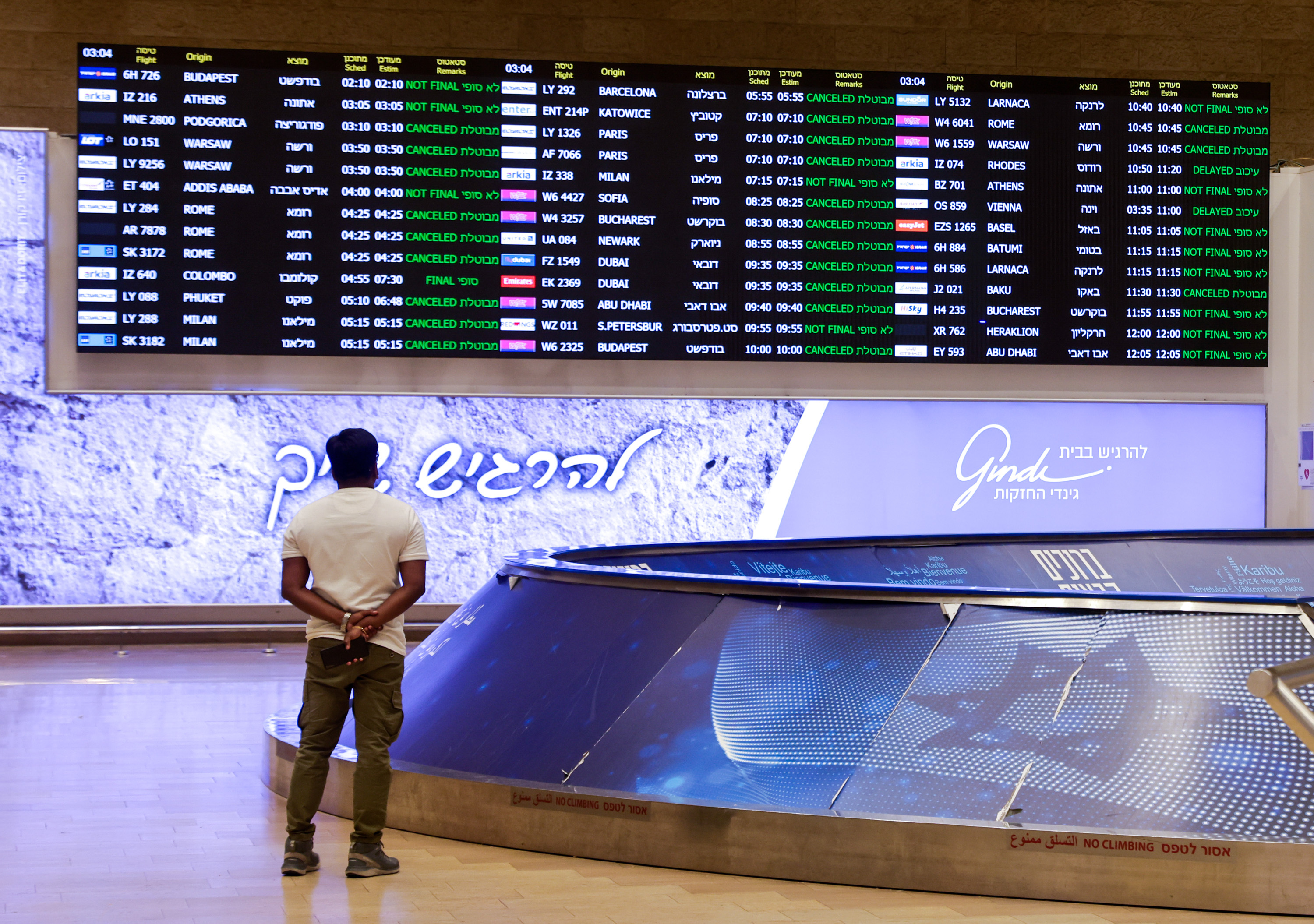Iran’s “retaliatory” strike on Israel last weekend has triggered the greatest disruption to air travel since 9/11, according to one industry expert.
“Not since then have we had a situation with that many different air spaces closed down in that quick succession, and that creates chaos,” says Mark Zee, the founder of the airline operations association OPSGROUP.
Iran, Iraq, Israel, Jordan and Lebanon closed their airspace during the attacks on April 13, and while all technically reopened on April 14 — and remain so after Israel’s retaliatory strike on April 18 — the European Union Aviation Safety Agency recommends that airlines “exercise caution” and notes that “there continues to be an increased potential for miscalculation and/or misidentification at present over Tehran”.

Consequently flights eastwards from Europe have been facing disruption that could potentially get worse if the conflict escalates — especially as available routes are already significantly compromised by the closure of Ukrainian airspace since February 2022.
So if you’re flying to Asia or Australasia in the next few days or weeks, here’s what you need to know.
Advertisement
What is the problem?
Concerns about the safety of flying over a conflict zone are leading airlines to avoid Iranian airspace and seek alternative routes east. The options are to fly north of Iran, through the Stans (Uzbekistan, Pakistan, Tajikistan), or south, via Egypt and the Red Sea. There is, though, a risk that in the event of further conflict between Iran and its allies and Israel, Houthi drone and missile attacks on Israeli targets would overfly Saudi Arabia and force the closure of that airspace too.
Which destinations are affected?
Many airlines, including easyJet, have suspended flights to Israel. Lufthansa has also cancelled departures to Tehran, Beirut and Amman. But the potential for disruption extends beyond the Middle East to many popular destinations east of the Arabian Sea. These include Pakistan, India, Nepal, Bangladesh, Thailand, Cambodia, Vietnam, Malaysia, the Philippines, Australia and New Zealand.
• Travel insurance guide: everything you need to know
Which airlines are avoiding Iranian airspace?
Virgin Atlantic says it has “made the decision to temporarily avoid the airspace of Iraq, Iran and Israel, meaning some Virgin Atlantic passenger services between the UK and India will be adjusted. We will continue to monitor the situation and apologise for any inconvenience caused to customers by slightly longer flight times”.
Singapore Airlines is now routing through Central Asia, with the airline warning that “some flights may take slightly longer than usual,” and Malaysian Airlines flights from London — its sole European route — have diverted both to the north and the south of Iran over past days. Qantas’s nonstop route to Perth will now land to refuel at Singapore, and both Air India and Vistara are flying around Iran. Finnair and SAS have also re-routed some Asian departures. Emirates, Oman Air, Fly Dubai and flights from Wizz Air’s Abu Dhabi base are still overflying Iran.
Advertisement
Wizz Air flights from the Abu Dhabi base, however, are still flying over Iran.
• Is it safe to travel to Egypt right now?
• The latest travel advice for the UAE

What about British Airways?
BA is continuing to operate four times a week to Tel Aviv, with outbound flights stopping in Cyprus en route for a crew change. Its flight departed London on Monday as scheduled. The airline said it is closely monitoring the situation in the country. The Times understands BA was already avoiding Iranian airspace.
How long could I be delayed?
The duration of flights in both directions between Europe and Asia and Australasia has increased due to the extra distance involved in avoiding Iran. The shortest flight time from London to Singapore — avoiding Ukrainian airspace — is about 13.5 hours, but diverting south via the Arabian peninsula could push that to about 15 hours. Stops for refuelling can add further delays — Virgin’s VS354 from Heathrow to Mumbai was hit by a five-hour delay for refuelling in Istanbul last Saturday. But in most cases delays appear to be minimal.
Are all flights east affected?
Not necessarily. If you’re transiting through a Middle Eastern hub such as Dubai, Abu Dhabi or Doha your onward flights to Asia are unlikely to be affected by airspace restrictions over Iran, which lies to the north. But with so many other flights now flying via the Arabian peninsula or Central Asia, there’s a possibility that you may encounter minor delays as air traffic controllers cope with the congestion. Will that cause significant disruption? John Grant at the aviation analyst OAG doesn’t believe so. “It’s certainly going to make the space a bit busier but they can handle the volumes and hopefully this will only be a short-term issue.”
Will flight prices rise?
Advertisement
In the short term that’s unlikely, but, if conflict in the Middle East escalates, airlines will pass on the increased operating costs to passengers — and it’s not just a matter of the extra fuel burnt re-routing around Iran. Oil prices haven’t increased since the start of the Gaza war simply because production has not been affected, but if Israel targets Iranian infrastructure that could change.
What happens if I miss my connection?
If your flight originated in the UK or the EU, your airline is legally bound to offer assistance with accommodation, onward travel at the earliest opportunity — even if it’s with another airline — and, where appropriate, compensation for delays or denied boarding. For flights into the UK or EU, on airlines registered outside those jurisdictions, no such obligation applies, but in most cases the carriers will do their best to help. In some cases you’ll have to run to catch connections, and be aware that while you may make it on board, your luggage might not.
Can I cancel and get a refund?
In the absence of formal Foreign Office advice against travelling, normal booking conditions apply, so while you may cancel if you wish, you cannot expect a refund.
How will I know if my flight is affected?
Your airline will be in touch.




